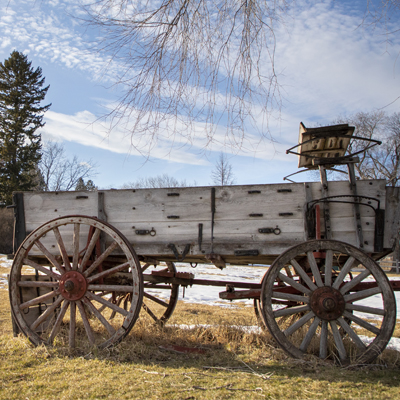What Can I Do With a History Degree?
A history degree opens up a wide variety of occupational opportunities—rather than tracking graduates into a single career path—and gives graduates the intellectual skills to rise to the top of their chosen fields as well as the flexibility to change careers later in life.
Graduates of UM's History Department have worked for the National Forest Service, served in public office and as foreign service officers, directed non-profits, and become members of the bench and bar. They have taught high school students, reported from war zones, started small businesses, worked for major corporations, and made history public through positions in archives, museums, and historic preservation. The list goes on.
To prepare our graduates, we equip them with an impressive tool kit. The study of history teaches you to read, analyze, research, and write with precision, nuance, and clarity. As the American Historical Association explains, “Students of history learn to reach sound judgments by reading widely and weighing evidence with care. They construct persuasive arguments based on research rather than rumor or reflex.” Employers seek out job candidates with these intellectual skills and commitments.
Beyond career applications, knowledge gained from studying history prepares graduates for a lifetime of engaged citizenship and enhanced learning while reading, traveling, interacting with others, or just observing one’s surroundings.
A history degree allows you to:
Govern
- The U.S. Government is the largest single employer of historians—in the Foreign Service, the National Park Service, the Peace Corps, and nearly every other federal agency.
- State and local government employ historians as planners, researchers, and analysts. Many history majors have worked in political campaigns, and as legislative aides and managers.
- One UM history major became Majority Leader of the U.S. Senate and Ambassador to Japan; another, Governor of Montana.
Educate
- The School of Education currently certifies secondary school teachers in the field of history. It also certifies prospective teachers in Comprehensive Social Science.
- Our graduates have also pursued masters and doctoral degrees in history at prestigious universities across the country and have gone on to teach at a wide range of higher education institutions.
Argue
- To study history is to engage in often controversial debates about the past. Not surprisingly, many history majors go to law school and work in all sectors of the legal community representing the interests of businesses, the government, individuals, and the environment.
Research
- Two UM graduates formed Historical Research Associates in Missoula over thirty years ago.
- HRA has secured a number of "historical impact" contracts, and has employed our students in full-time and part-time work.
- A second Missoula-based firm, The Heritage Research Center, also has UM connections.
Collect
- Libraries, museums, archives, and repositories are staffed by students of history.
Communicate
- Newspapers, magazines, radio, TV, and film media hire historians as researchers and writers. Many students combine their pursuit of history with journalism or English; majors in these subjects emphasize history as a minor.
Above all, talk to the history faculty. We love to brainstorm with students about ways to apply their history degrees in new and creative ways.
Resources for History Majors
For those asking, "What Can I Do With My History Major," resources abound. Here are a few useful links to begin thinking about careers and employment after graduation.
- American Historical Association - "What Can You Do with That History Degree?"
- AHA Perspectives - "History Is Not a Useless Major: Fighting Myths with Data"
